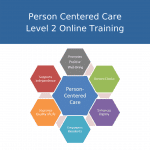Description
Diet And Nutrition: Online Training
This Diet and Nutrition online training course aims to give the delegates a strong understanding of how a person’s diet and nutrition has a direct connection to their health & well-being. This e-learning course will explain the essential nutrients to sustain a healthy and active body. It will also provide information on where to get these nutrients from.
- Developed by professionals
- Accredited by The CPD Accreditation Group
- 100% online, learn at your own time and pace
- Translates into over 100 different languages
- Instant certificate downloaded
Who is the diet and nutrition training for?
This training is suitable to all staff working within Adult Health and Social Care.
When will I get my certificate?
Once you have successfully passed our course you will be able to download and print your certificate immediately.
As this course has been accredited by the CPD Group your certificate will contain the CPD logo and unique reference number.
Key Points on Diet and Nutrition Training
- Understand what nutrients are
- Identify the essential nutrients required to sustain a healthy and active body
- Understand what our food is made up of, and which category of nutrients it belongs to
- Work out what foods would benefit specific dietary requirements





